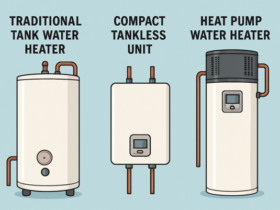Moving can feel exciting at first, but once everything starts getting packed and deadlines get closer, it can become really stressful. There are boxes everywhere, things go missing, and it can start to feel like there’s no end in sight. Especially when the move isn’t just around the corner—but to a whole different state. That’s when things really get tricky.
But here’s the good news: moving doesn’t have to be total chaos. With a little planning and the right help, you can keep everything on track and avoid most of the stress people usually run into. It’s not about doing everything perfectly—it’s just about doing it in a way that actually works.
Start with a Plan That Makes Sense
Before touching a single box, make a plan. It doesn’t have to be fancy, just something simple to keep things from getting out of control. Pick a move-out date and work backwards from there. Figure out when to start packing, what to pack first, and which things need to stay out until the very end.
Trying to do everything at once usually makes people feel rushed and overwhelmed. Breaking the move into smaller steps—like packing one room at a time or setting aside a few hours per day—helps keep it manageable. It’s also a good idea to make a checklist so nothing gets forgotten in the rush.
Don’t Try to Move Everything All at Once
Moving to another state isn’t the same as moving down the street. There’s more travel time, more to organize, and more chances for something to go wrong. That’s why many people use interstate removals and storage to make things easier.
Instead of trying to cram every single thing into one truckload, storage gives you space to keep non-essential items safe until you’re ready for them. It’s especially helpful if your new place won’t be ready right away or if there’s a delay between moving out and moving in. Professional removalists also know how to handle long-distance moves, which means less stress about how your belongings will arrive.
When everything doesn’t have to move at the exact same time, it’s a lot easier to stay focused and not feel buried under boxes.
Pack Smarter, Not Just Faster
It’s easy to throw things into boxes when you’re in a hurry. But if nothing’s labeled or organized, unpacking will be a nightmare. One smart move is to pack by room and label everything clearly. Write what’s inside and where it belongs. That way, when it’s time to unpack, it’s clear where things go without opening every box just to find a toothbrush or phone charger.
Also, don’t forget to pack a “first day” box. That’s the one with all the stuff you’ll need right away—like clothes, basic toiletries, snacks, and chargers. Having that one box can save a ton of stress the first night in your new place.
Get Rid of Things You Don’t Need
One of the best times to get rid of things is right before a big move. There’s no reason to carry boxes full of old clothes or broken electronics to a new house. It just adds to the cost and the mess.
As you’re packing, set aside anything you don’t use, don’t wear, or forgot you even owned. Some things can be donated, some can be sold, and some just need to be thrown out. The fewer things you move, the simpler the whole process becomes.
Plus, starting fresh in a new home with less clutter feels a lot better than filling it with things you don’t actually want.
Give Yourself More Time Than You Think You Need
Even when everything is planned perfectly, moving always takes longer than expected. Packing up a room might seem like a one-hour job, but it usually takes much more. The same goes for loading up the moving truck, cleaning the old place, and setting up in the new one.
That’s why it helps to start early and give yourself extra time. Waiting until the last minute means more stress, more mistakes, and more chances of leaving something behind.
If possible, take a day off school or work right before the move. Having extra time to wrap things up or fix last-minute problems can make a big difference.
Keep Important Things With You
During a big move, boxes can get misplaced or delayed—especially when you’re going across state lines. That’s why it’s smart to keep important things with you. This includes documents, medications, chargers, and anything valuable or breakable.
Even if most of your belongings are being moved by professionals or placed in storage, it’s a good idea to have a backpack or small suitcase with your must-have items. It gives peace of mind and means you’re not stuck if something doesn’t show up right away.
Let Others Help
Moving isn’t something you need to handle alone. If friends or family offer to help, say yes. Whether it’s watching younger siblings, bringing over boxes, or helping clean the house, every little bit makes a difference.
And when it comes to the heavy lifting and transport, hiring a trusted removalist can make the whole process smoother. They’re trained to pack, lift, and load in ways that protect your things—and they know how to handle long trips without damage.
Trying to do everything without help usually leads to more stress, more delays, and a higher chance of things going wrong.
What to Remember When It’s All Happening at Once
The biggest thing to remember is that moving takes time. It’s normal to feel stressed, especially when everything is happening at once. But with a solid plan, smart packing, and help from the right people, you can make it through without everything falling apart.
Break the move into smaller steps. Use storage when it helps. Keep the important things close, and give yourself space to rest when you need it.
Final Thoughts
Moving your whole house might sound like a huge challenge—and sometimes it is. But it doesn’t have to be a disaster. When you stay organized, start early, and use help where it counts, you’ll get through it in one piece. The key is keeping it simple, doing things in order, and not trying to handle every part at the same time. Before you know it, the boxes will be unpacked, the furniture will be in place, and the new space will start to feel like home.







